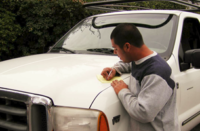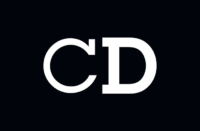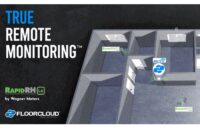Wagner Meters is marking its 50th anniversary by reflecting on its history and giving thanks to its many loyal customers in the flooring industry. Wagner Meters began in the early 1960s when the founder, Delmer Wagner, worked for a sawmill in Redmond, Oregon.
As an electrician, he listened to management’s frustration with the contact moisture detectors they used to measure moisture in lumber. These detectors were in a cabinet the size of a man and came equipped with radio vacuum tubes. They were hard to use, hard to calibrate, and hard to interpret.
Always up for a challenge, Wagner experimented with new designs and new technologies. He soon came up with the first in-line moisture detector using transistors.
Smaller and more compact than traditional detectors, it cost less to make, was much more reliable, and easier to calibrate. The mill took out a patent on his device, but shortly after Wagner left the mill to teach at a local college. After two years, he felt compelled to leave and start a business selling moisture detectors – a device he knew quite well.
In 1965, Wagner Electronics was founded. The company name remained the same until 2010 when the name was changed to Wagner Meters to better express the solutions it offers to the market. The company’s original technology was focused on the lumber industry, specifically, measuring and monitoring the moisture ranges of the wood in the drying kiln.
Delmer’s son, Ed Wagner, started working for Wagner Electronics in 1967 at the age of 10. He started with wiring, assembling, soldering and testing meters. By the time Ed left for college, he was well grounded in all the technical aspects of the business. Shortly after earning a degree in engineering, he moved into management with his promotion to Production Manager. Delmer retired about 1987, and sold the majority of stock in Wagner Electronics to Ed, who was then named president and CEO of the company.
During the early 1990s recession, the company changed direction. While they still worked closely with the milling industry, they expanded to a new focus on wood flooring. In 1992, Wagner Meters entered its first market outside forest products. At that time, wood flooring installers were only using pin-style moisture meters on hardwood floors. But that was problematic because it required having to make holes in the floors to get a reading.After listening to wood flooring installers’ needs and concerns, Wagner Meters began offering a hand-held pinless moisture meter. It didn’t put unsightly holes in the wood, and it was faster and easier to use.
The L606 and L607 models were introduced in the 1990s. The company’s latest model, the MMC220, is a non-invasive wood moisture meter that provides fast and accurate readings backed by an industry leading seven-year warranty.
Wagner Meter’s meters can take accurate readings even when there’s a little bit of moisture on the surface of the wood. The meters can measure right through surface moisture, to the moisture actually in the wood – unlike other meters on the market.
In the early 2000s, the company again expanded to meet the needs of a new market. A conversation with a cement material testing laboratory led to the first concepts of what was to become Rapid RH, Wagner Meters’ first tool for measuring moisture in concrete. Wagner Meters and the CTLGroup collaborated to develop the Rapid RH, an in-situ relative humidity testing system for concrete that was introduced to the flooring industry in 2005.
The single-use Rapid RH was developed to eliminate the hassle of the reusable probes, which are expensive, hard to use and had to be sent back to the factory for re-calibration. The Rapid RH 4.0 is the company’s most advanced single-use system.
The Rapid RH 5.0 is a reusable system offering faster and more accurate concrete moisture testing, as well as greater convenience and cost savings. Since its introduction in 2005, the Rapid RH has since become the industry’s No. 1 selling relative humidity test for more than 10 years. In 2006, the original Rapid RH won the “Most Innovative Product” award at World of Concrete (WOC). In 2013, the Rapid RH DataMaster won the “Most Innovative Product” award at WOC. A hand-held device, the DataMaster pairs touchscreen capabilities with Bluetooth technology to allow users to quickly and easily record all test data for a particular job site.
(800) 634-9961












